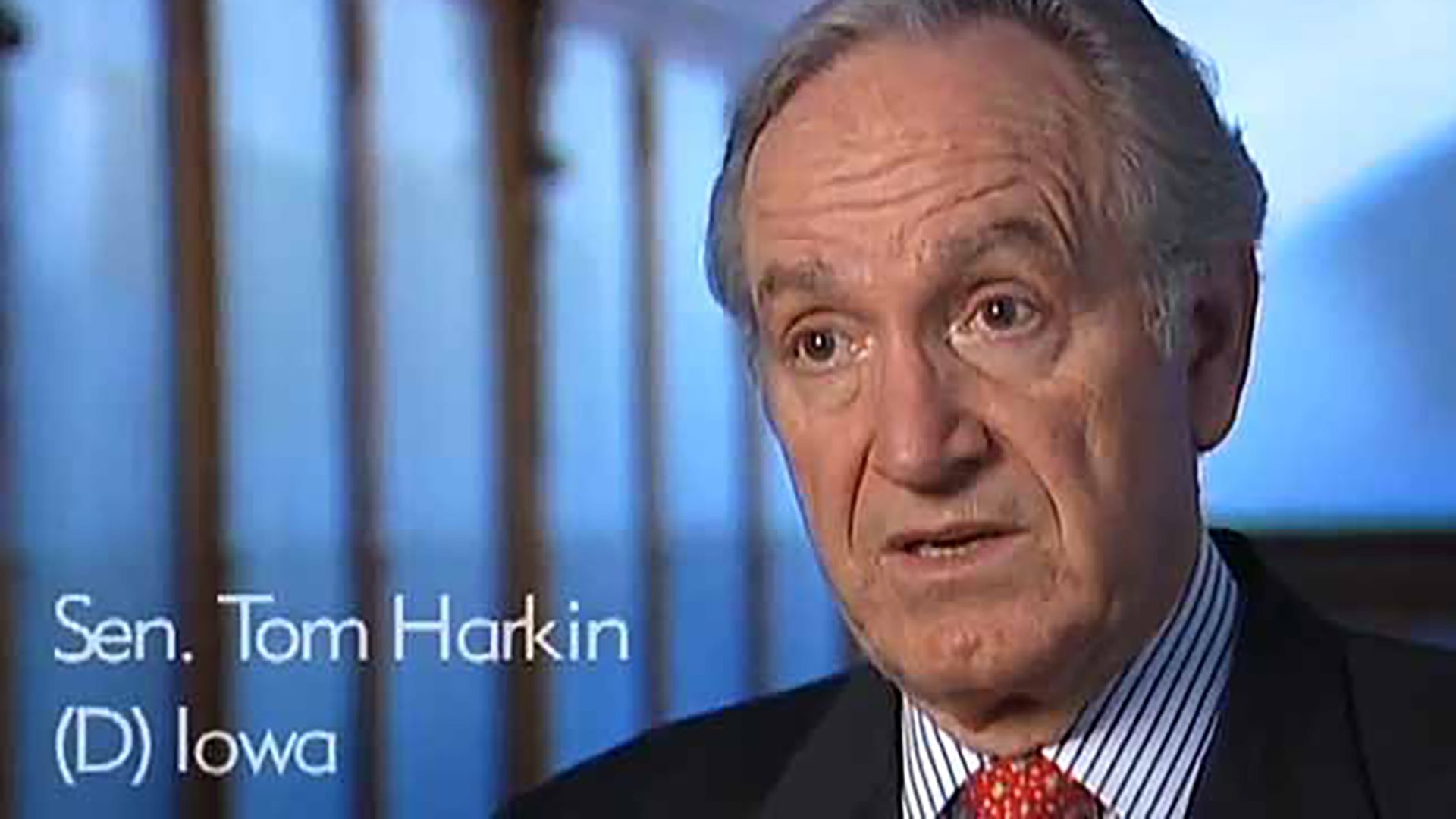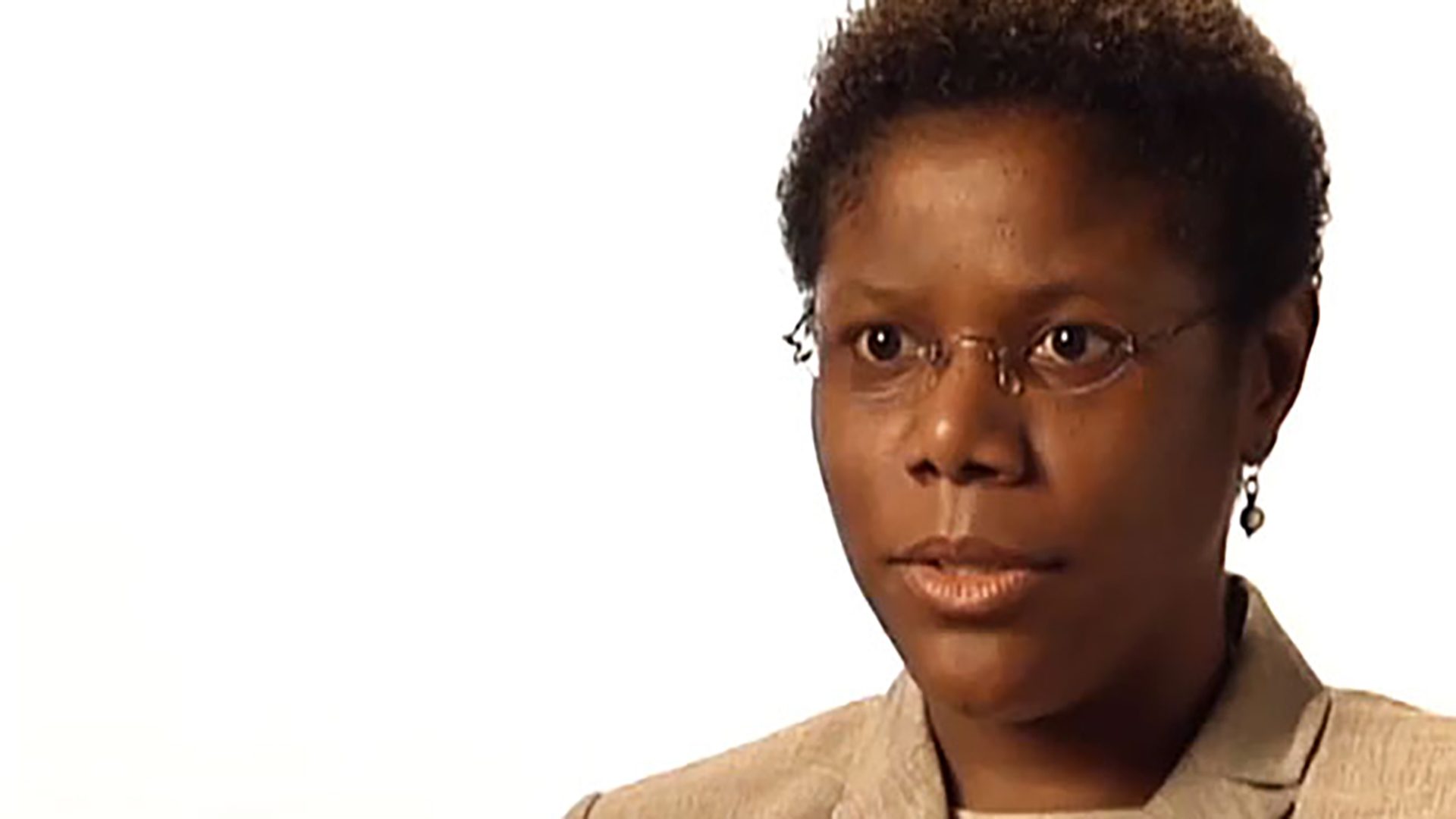Cancer Interview – Former Senator Tom Harkin
4 of former Iowa Senator Tom Harkins’ siblings have passed away from cancer. He talks about employment discrimination, losing loved ones, and public policy.

I’m the youngest of six children, of which there were four boys and two girls. Neither one of my parents has had cancer. In fact, in the small town I’m from—a town of about 150 people—cancer was unknown. We never even heard about it when I was little.
Later on, my oldest sister came down with breast cancer, and she had a relatively young family. Where she was living at the time, there was no early screening or anything like that. She was the first to pass away from breast cancer. Of course, we were all at the funeral. My other sister was there, not even knowing that she, too, at that time also had breast cancer. She got diagnosed a little bit later. Within a year and a half of my first sister’s death, my second sister died of breast cancer. She also had a young family.
Maybe a dozen years after that, my next oldest brother came down with thyroid cancer, which usually is a cancer that’s very treatable. But it had already metastasized, and then he succumbed to that. Then my oldest brother, who had been disabled all his life—he’d been deaf—came down with prostate cancer and it, too, had metastasized. He passed away. Four of my siblings have died of cancer. There’s only two of us left. Now what’s happened is that my oldest sister’s oldest daughter has been diagnosed with breast cancer. Although hers was detected early and we have great hopes for her, it’s really got my whole family kind of shook up. We’ve been touched very deeply by cancer in my family.
When I first came to Congress, I had not focused that much on cancer. It was just something I knew was out there. Of course, after my two sisters died of breast cancer, I became involved in the whole movement on breast cancer. When my other brother got thyroid cancer, I thought, “What’s going on here?” That’s about the time I came to the Senate and got on the Appropriations Committee that funds the National Institute of Health and the National Cancer Institute. I began to really focus a lot of my attention on research and to get more money, hoping that we can make some major breakthroughs.
In the beginning, I was the first one to chair the committee that funded the Human Genome Project, because I think there are some genes that we have to look at, in terms of cancer. It got me to the point where I have dedicated most of my Senate career to really focusing on cancer and getting the kind of money for research that we need to find the causes, the cures and, hopefully, some form of vaccination or immunization for cancer. I still believe that’s going to happen.
There are several aspects of being a cancer survivor that I have become aware of and have worked with over the years. First was discrimination. I can remember when people talked about cancer as being a communicable disease. They thought, “My gosh, I can’t work near you, because I could get cancer from you.” I’m the author of the Americans with Disabilities Act. When we wrote that bill and got that bill through, we even envisioned putting in the language, “discrimination against those who might have something like cancer and people who discriminate against people with cancer.” One of the most famous Supreme Court cases dealt with a woman who had had breast cancer and had sued because she had been fired from her job. We still confront this discrimination against people, so that’s one area, breaking down the old myths and stereotypes.
Secondly, making sure that people know that they can have a full life after having been treated for cancer. I have a lot of friends who have been treated for various forms of cancer, who are perfectly healthy today and leading full, normal, healthy, active lives.
I think that message has to get through to people, too, that there are treatments out there. Get it early. I still believe if my two sisters had been diagnosed early, they would never have died of breast cancer. But that’s the deal, you’ve got to get early screening, early treatment, and then you can have a full life.
I have lived through a lot of cancer in my family and have seen the devastating effects that it has on the family and on those around you. I’ve seen other friends who have had cancer, but who have been treated, and it’s almost like, “My life’s over.” What the Lance Armstrong Foundation is doing is giving courage to people. Look at what Lance Armstrong has done, for crying out loud. That gives courage to people. There is no need for anyone who’s had cancer and been treated for cancer to even remotely think that they can’t do what they did before. Of course they can. To me, that’s what the Foundation is doing: giving this hope and courage to people to say, “Look, you can go on and have a full, rich, meaningful life even though you’ve had cancer.” Just like any other illness, any other disease.

